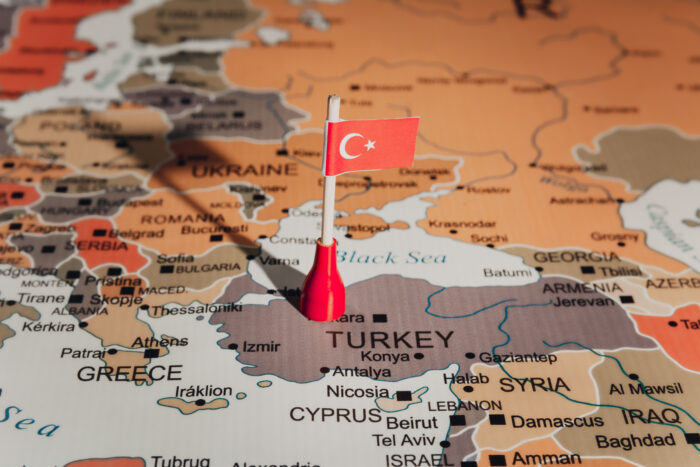The Progressive Post
Why the European project needs defence

Progressives have long been arch defenders and advocates of the European project, pushing the EU to strengthen its union and advance European integration. Yet when it comes to EU defence, progressives have been less vocal. Perhaps this is down to defence being seen as the domain of conservatives and progressives prioritising domestic spending. But strengthening EU defence should be a core part of the progressive vision for Europe, as it is key to the advance of the European project.
EU defence has suddenly been thrust back on the EU agenda after the chaotic withdrawal from Afghanistan and the fallout over the AUKUS submarine deal. Europe has had twin revelations. First, the US and European security priorities are no longer identical. America may be ‘back’ with President Joe Biden, but the US has also fully pivoted to Asia, meaning it has not only pivoted away from Europe, but also from the Middle East and the Sahel – Europe’s broader neighbourhood. Second, Europe’s utter military weakness means it is entirely dependent on a United States that is increasingly disinterested to protect EU citizens. This has led to calls for action. A summit, now set for early 2022 under the French EU presidency, will create an opportunity for the European project to make significant advances.
First, it should bother European progressives that the EU cannot protect its citizens. The EU, despite spending about €200bn a year (as much as a major power), remains utterly dependent on the US for its security. While this may feel fine during the current US administration, the prospect for an isolationist or far-right administration should make Europeans think. The airlift at Hamad Karzai International Airport was a massive humanitarian intervention, involving thousands of forces and the logistical might of the US military. The EU couldn’t have evacuated its citizens without the help of the United States. Europe lacks critical, yet basic, enabling capabilities: the air tankers to keep transport and fighter aircraft aloft, the drones to provide intelligence and surveillance. Similarly, even France, the EU’s strongest military power, needs the US military’s logistical support to operate in the Sahel.
Second, EU defence will significantly advance the European project. It is worth looking back at the European Defence Community (EDC) proposal of the 1950s to understand why. With the Cold War kicking off and Soviet forces vastly outnumbering US forces, there was a need to rearm West Germany. Yet this was understandably concerning for France and Europe. Hence, France’s solution was to create a European force. Yet in the process of negotiating the European Defence Community, thorny issues emerged. In a democracy, there must be civilian control over the military. Troops must take orders from democratically elected leaders. Hence, the EDC created a directly elected peoples’ chamber. Additionally, operating and maintaining a military requires strong fiscal support, and, in this case, a common budget. Creating a common defence force thus made forging a political union necessary. If France hadn’t blocked the EDC at the end, it would have been a massive leap forward in European integration and the European project.
Developing the EU’s defence capacity will therefore further the cause of a political union. It will highlight the need for internal EU reforms. The EU would need to strengthen and streamline its foreign and security policy decision-making. A stronger defence capacity would put pressure on the EU to address its democratic deficit – picking the head of the European Commission and Council through backroom deals won’t cut it. The EU would also need to expand its fiscal capacity to support defence procurements and operations.
Third, Europeanising defence is a way to eventually make sure European actions live up to European values. Progressive concerns about creating a European defence industrial complex or militarising Europe ignore that leaving defence to member states means there are currently no European regulations or policy on external arms sales. National defence industries have a lot of clout within European countries and push to remove constraints on arms sales. This means member states are often extremely reticent to forego a sale due to concerns over human rights or safeguarding sensitive technology. European progressives may find this surprising, but overall, the US process for vetting and approving arms sales is extremely rigorous, far more so than for most European arms exporters. Hence, pushing for a greater EU role in defence could also lead to a more rigorous European process to vet and approve these sales.
What to do? Ultimately, EU defence is about spending money and making real investments. It is not good enough for European progressives to support the concept of EU defence, without supporting funding real, tangible, acquisitions. The NextGeneration EU recovery fund means the EU now has the ability to borrow. European progressives should call on the EU to borrow additional funds to make key acquisitions that fill gaps in EU and NATO capabilities.
The EU needs to get its act together on defence. Ahead of next year’s defence summit, European progressives should be pushing the EU to think big and act boldly. If they do, next year’s summit could prove a critical moment in the development of the European project.
Related article:
Europe and the US: growing apart, by Anthony Dworkin




